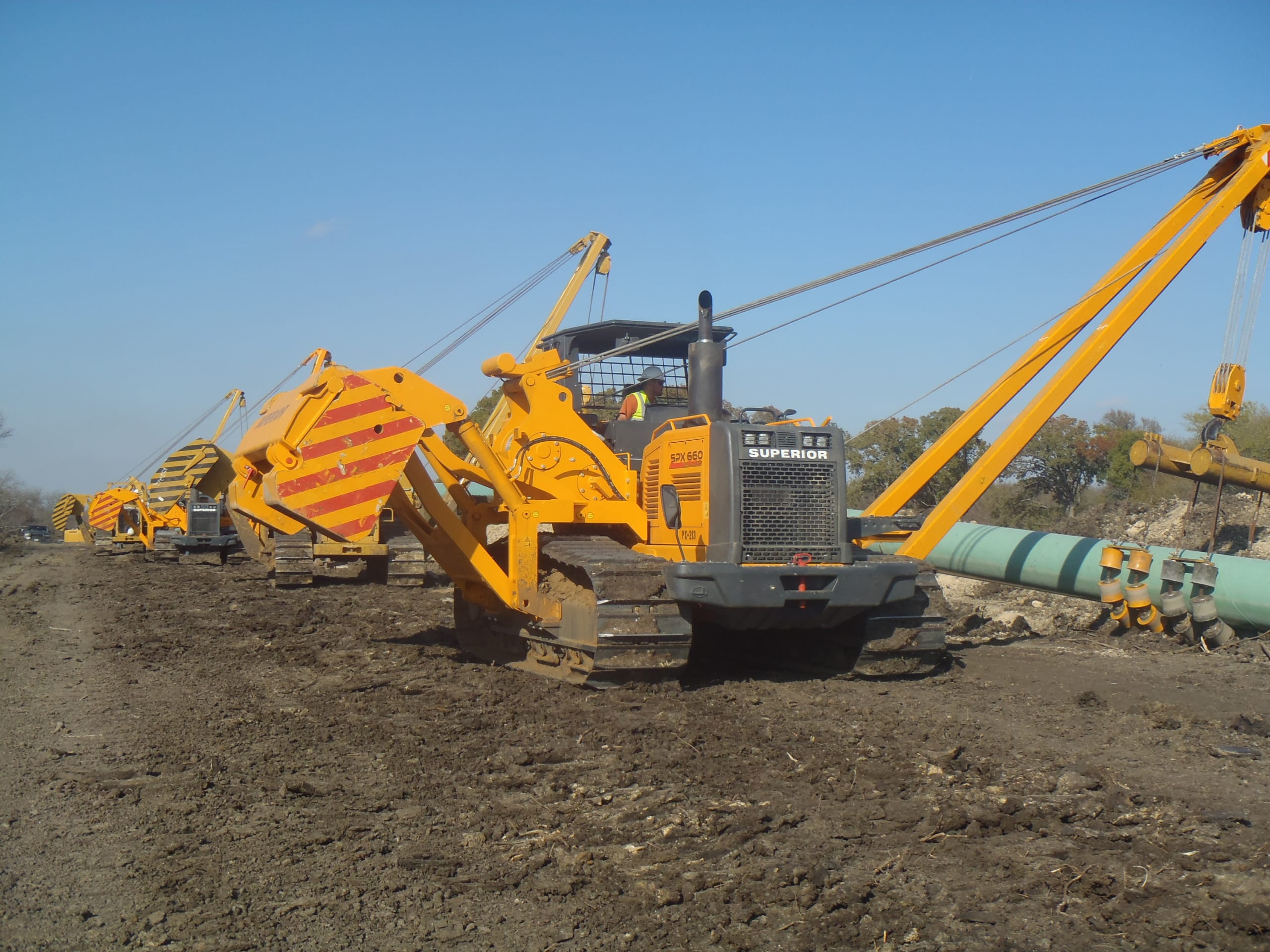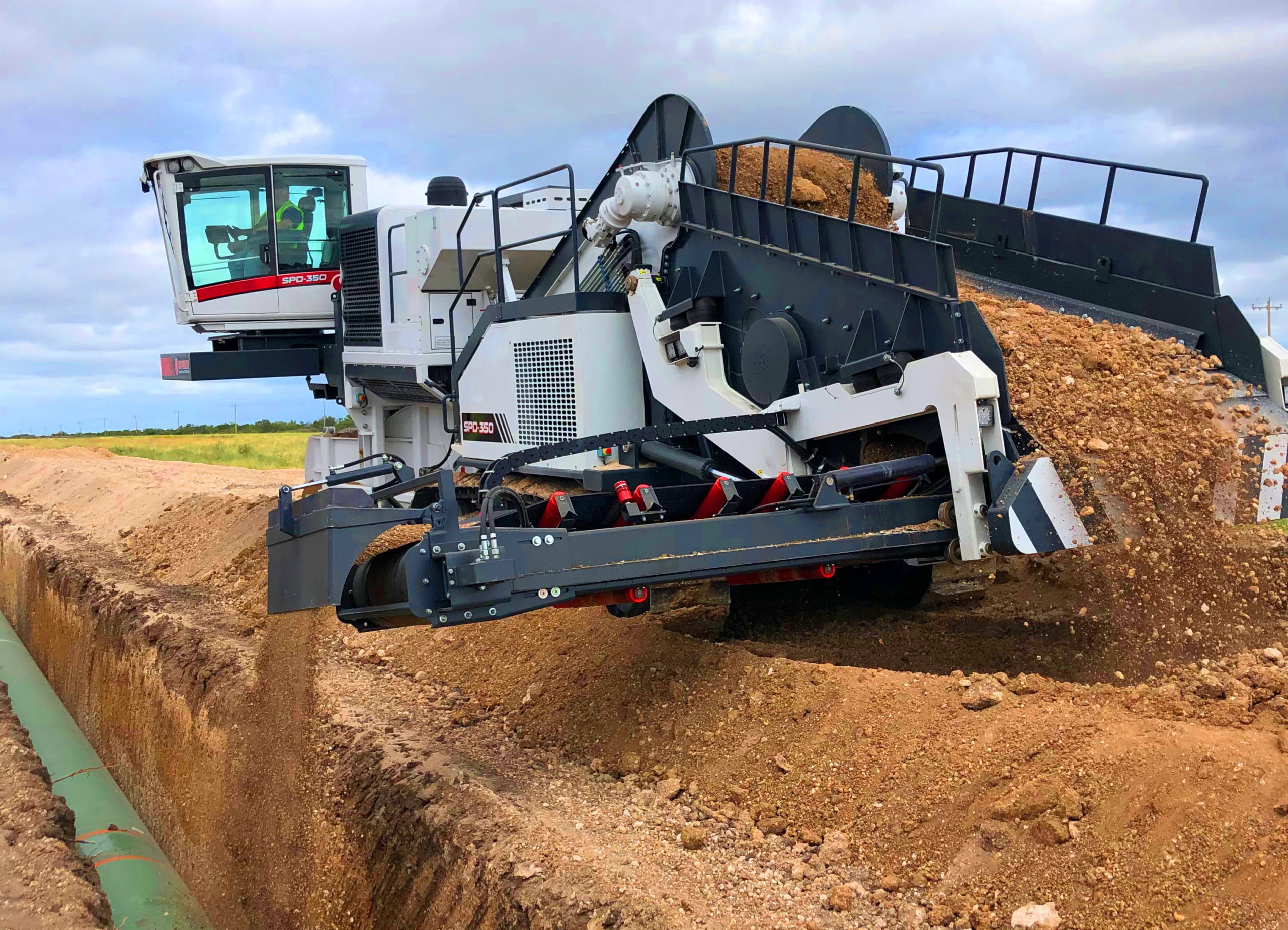A Comprehensive Guide to the Different Sorts Of Oil Field Equipment and Pipeline Equipment Available
The oil and gas market depends heavily on customized equipment for efficient extraction and transport. Numerous kinds of equipment, from piercing rigs to tank, play crucial duties in this intricate procedure. Each piece of equipment offers unique functions that contribute to total functional success. Recognizing these elements is crucial for any person associated with the industry. As the sector advances, so too do the technologies that sustain it. What advancements are on the perspective?

Drilling Rigs: The Backbone of Oil Exploration
Drilling rigs act as the necessary machinery in the domain name of oil exploration, enabling companies to accessibility hydrocarbon reserves hidden deep underneath the Planet's surface area. These rigs can be found in numerous types, including land rigs, offshore rigs, and mobile devices, each designed to operate in particular atmospheres. Equipped with advanced technology, piercing rigs can pass through geological developments with precision, guaranteeing efficient resource removal. The structural integrity and operational abilities of these rigs are important, as they should hold up against extreme conditions and substantial stress. The choice of a drilling gear affects the general project expense and timeline, making it a vital consideration for oil companies seeking to enhance their exploration efforts and make the most of performance in their operations.
Pumps: Crucial for Liquid Motion
In the oil removal procedure, the duty of pumps is substantial, assisting in the movement of fluids throughout different phases of production. Pumps are crucial for transporting petroleum, water, and various other fluids from below ground tanks to the surface area and afterwards through pipes to refineries. They come in various types, consisting of centrifugal, favorable displacement, and completely submersible pumps, each serving specific objectives based on the liquid qualities and operational demands. Centrifugal pumps are commonly utilized for their efficiency in high-flow applications, while positive variation pumps succeed in managing thick fluids. The choice of pump effects overall effectiveness, functional security, and upkeep prices. Appropriate option and maintenance of pumps are important for enhancing manufacturing and decreasing downtime in oil field operations.
Shutoffs: Controlling Flow and Pressure

Shutoffs play an important function in taking care of the flow and stress of liquids within oil areas and pipes. Various sorts of valves serve distinctive applications, each made to meet specific functions essential for effective procedure - Superior Oilfield pipeline equipment rentals. Recognizing the attributes and uses these valves is important for enhancing system performance and security
Sorts of Valves
Crucial components in oil area procedures, shutoffs play a vital duty in regulating the circulation and pressure of fluids within pipes and tools. Numerous types of shutoffs are made use of to satisfy the varied demands of oil and gas manufacturing. Common types consist of entrance shutoffs, which give a straight-line circulation and very little pressure decline; globe shutoffs, understood for their strangling capacities; and sphere valves, acknowledged for their quick on/off control. Additionally, check shutoffs stop heartburn, while butterfly shutoffs supply a light-weight option for controling circulation. Each valve type is developed with certain products and setups to withstand the rough conditions frequently found in oil areas, guaranteeing dependability and performance in procedures. Recognizing these types is vital for reliable system monitoring.
Valve Applications and Features
While numerous kinds of valves offer distinctive purposes, their key applications revolve around managing circulation and stress within oil and gas systems. Valves such as entrance, globe, and ball shutoffs manage fluid movement, ensuring peak efficiency and security. Gate shutoffs are frequently used for on/off control, giving minimal circulation resistance. Globe valves, on the various other hand, deal exact flow policy, making them appropriate for throttling applications. Sphere shutoffs are favored for their fast procedure and tight sealing capabilities. Furthermore, stress relief shutoffs are important for preventing system overpressure, securing equipment honesty. Generally, the proper selection and application of valves boost functional performance, making sure the reputable transportation of oil and gas with pipes and handling facilities.
Compressors: Enhancing Gas Transport
Compressors play an essential role in the effective transportation of natural gas, making sure that it relocates efficiently through pipelines over long ranges. These tools boost the stress of natural gas, permitting it to get rid of friction and elevation adjustments within the pipeline system. In addition, compressors promote the balancing of supply and demand, fitting fluctuations in consumption and production prices. Various types of compressors are employed in the industry, including centrifugal, reciprocating, and rotating screw compressors, each offering distinctive benefits based go now on the functional needs. Routine maintenance of these compressors is necessary to make best use of efficiency and reduce downtime, inevitably adding to a reliable gas transportation network. Their essential function emphasizes the relevance of compressors in the total oil and gas framework.
Storage Tanks: Safe and Reliable Liquid Management
Reliable transportation of gas relies upon various sustaining systems, one of which is the correct management of storage space containers. These containers play a crucial duty in securely including fluids, making certain that functional effectiveness is preserved while lessening ecological dangers. Created from resilient products, they are created to stand up to high stress and harsh aspects. Effectively sized and purposefully located, tank facilitate the smooth flow of all-natural gas and other fluids, protecting against traffic jams in supply chains. Regular maintenance and tracking are important to discover leakages or structural problems, promoting safety and compliance with regulatory standards. Ultimately, the effective administration of storage tanks is important for the general stability and reliability of the oil and gas industry's liquid handling systems.
Pipeline Systems: Infrastructure for Transport
Pipeline systems serve as the backbone of the oil and gas sector, helping with the effective transport of hydrocarbons over huge distances. These systems include numerous elements, consisting of pipes, valves, pumps, and compressors, all meticulously made to assure seamless flow. The products made use of in pipeline building and construction, frequently steel or high-density polyethylene, are selected for sturdiness and resistance to corrosion. Pipeline networks can extend throughout land and water, connecting production websites to refineries and circulation facilities. Additionally, advanced innovation enables real-time surveillance of flow prices and pressure levels, improving operational performance. The tactical positioning of these pipelines decreases ecological impact while optimizing resource access, thereby playing a vital role in conference power demands internationally.
Safety Equipment: Ensuring Worker and Environmental Management
The procedure of pipeline systems, while necessary for energy transport, additionally presents considerable safety challenges for employees and the environment. Safety devices plays a considerable duty in reducing these threats. Individual safety equipment (PPE) such as helmets, handwear covers, and non-slip footwear safeguards workers from physical risks. In addition, gas detection systems keep an eye on for leaks, ensuring that dangerous substances do not present a danger to personnel or the surrounding environment. Emergency shutdown systems are imperative for rapidly halting procedures throughout a situation, stopping potential calamities. Spill containment products, including absorbents and barriers, are basic for reducing ecological influence. On the whole, purchasing comprehensive safety and security equipment is important for keeping operational stability and shielding both workers and the environment in the oil and gas industry.

Often Asked Questions
How Do I Choose the Right Oil Field Equipment for My Job?
Choosing the ideal oil field devices includes evaluating project sewer line inspection near me specifications, spending plan restraints, and operational demands. Consider elements such as tools dependability, compatibility with existing go to my blog systems, and the distributor's online reputation to assure peak performance and safety.
What Are the Maintenance Needs for Oil Field Equipment?
Upkeep demands for oil area devices include routine evaluations, lubrication, and timely repair services. Operators should likewise stick to supplier standards, screen efficiency metrics, and guarantee compliance with safety and security regulations to enhance long life and effectiveness.

How Can I Guarantee Compliance With Environmental Rules?
To guarantee compliance with ecological regulations, companies have to perform routine audits, implement ideal practices, buy training, keep correct documentation, and stay upgraded on regulations (Superior Rentals Contact). Partnership with ecological companies can also boost adherence to regulations
What Is the Average Life Expectancy of Pipeline Equipment?
The average lifespan of pipeline equipment typically varies from 20 to 50 years, relying on variables such as worldly top quality, ecological conditions, and maintenance practices. Routine assessments can significantly influence long life and operational efficiency.
How Do I Safely Carry Oil Field Equipment to Remote Locations?
Delivering oil area devices to remote areas calls for cautious preparation, consisting of path evaluation, safeguarding permits, using suitable vehicles, and making certain safety and security procedures are adhered to. Correct training and interaction amongst crews are vital for successful transportation.